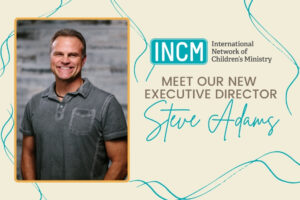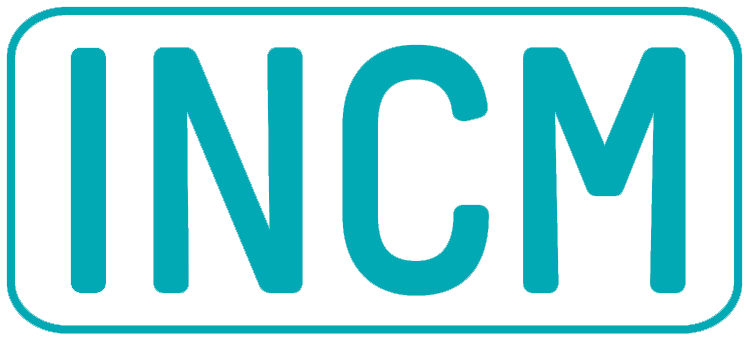This post was written by guest writer Amy Fenton Lee.
Amy Fenton Lee.
One of the biggest obstacles to starting or growing a special needs program is the intimidation that comes with a lack of understanding or knowledge of the disability world.
Writing on this topic has involved learning new lingo and understanding the importance of very particular phrasing for me.
While I have no background in special education, I’ve never covered another subject matter where I’ve discovered as many willing and passionate teachers.
At every turn a new person has presented themselves as a resource, giving generously of their own personal time to educate me.
This has been true of leaders in established church programs as well as professionals from the secular world of special education, pediatric therapies, and medical providers.
Regardless of their religion or faith, every special needs provider I’ve encountered has a deep personal interest in helping individuals with disabilities and their families develop support systems.
And they can be the best gift for maximizing the impact of the special needs ministry of a church.
The Benefits of Networking
The most effective special needs church programs are led by individuals or teams who have built a network of special needs professionals from outside the church.
In 1996, Jackie Mills-Fernald was a businesswoman and Sunday morning volunteer at McLean Bible Church in McLean, VA.
She assisted in a Sunday school room with four children diagnosed with autism.
Many years later, Mills-Fernald is director of McLean Bible Church’s Access Disability ministry, which is widely recognized as the nation’s largest comprehensive church program for the special needs community.
Mills-Fernald has no formal training in special education, nor do five of the other six Access ministry staff members.
But at the top of any Access staff person’s resume, you could easily find “master networker and fast learner” as bullet point number one.
The influence of special education teachers, speech pathologists, occupational, physical, and behavioral therapists, pediatric counselors, nutritionists, and other medical providers is noticeable in every area of McLean’s special needs programming.
Mills-Fernald and other Access team members regularly attend local forums or participate in community committees with special needs interests.
Mills-Fernald explains that “churches don’t have to know all the answers, just where to get them. At the beginning of our ministry, it was especially important that we build our network in the church and community. Over time our staff has gleaned from the professionals. Thirteen years after the ministry’s inception, we require less expert advisement because we have learned along the way and now we know what to do.”
The Access Ministry contacts list has evolved into an enviable network of essentially free consultants.
Rarely are any volunteers or professionals paid.
This is a mutually beneficial relationship for most professional contacts.
For example, McLean’s Access Ministry hosts a monthly special needs lecture series throughout the year.
Providers gladly participate as speakers in an effort to build their own private practices.
Those same participants and speakers are also the consultants Mills-Fernald calls on to review her training manuals, provide input for space design or work through issues as they arise in the ministry.
Mills-Fernald shares the story of a behavioral therapist who gladly took her call when a child attending the Access program began expressing tendencies toward violence. While such cases are rare, they do happen.
A therapist familiar with common disorders in the special needs population came and observed the child in church care.
The provider coached the Access ministry staff and volunteers in minimizing the likelihood of disruptive behavior and advised them in handling delicate conversations with the parents.
At some point, every church has an experience where the information and judgment offered by the parents of a child with special needs don’t match the observations and opinions of the ministry staff.
Relying on a conversation with a trained and qualified specialist is imperative for these infrequent but expected occasions.
Mills-Fernald expounds, “Knowing that experts familiar with the law or common practice are only a phone call away gives our team confidence. Utilizing these resources is smart for handling the inevitable challenge as well as keeping any risk to a minimum.”
Recruiting Consultants
The most common way churches develop their base of professional contacts is through their participating families.
Parents of children with special needs have built their own network of resources out of necessity.
These families are often incredibly well-read and familiar with reliable providers within their own community.
Churches may even consider inviting parents who have developed an extraordinary interest in the field along with professionals to serve in advisory roles for special needs programming.
Developing a working group that meets regularly may also create a committed set of help-mates in the ministry.
Professionals serving in an advisory capacity need not necessarily share the same theological background.
So long as the ministry leadership and actual Bible teachers (usually church members) are screened for appropriate understanding and application of Biblical truths, the nutritionist, psychologist, speech pathologist, etc. advising the ministry team can come from differing faiths.
The Professional’s Role
The regular care providers, buddies, and teachers in the ministry programs are rarely professionals from the special needs field.
Most people employed as pediatric therapists, counselors, and teachers spend every weekday focused on this population.
Because engaging individuals with special needs and their families can be emotionally demanding, providers often need a break from intense connection for their own recharge time.
The successful and effective church special needs programs respect the limits of their church members who are employed in the special needs field.
At the same time, most professionals want to help such a ministry using their talents and education.
Take the case of Stacie Trottier.
Trottier is a pediatric speech pathologist with Children’s Healthcare of Atlanta, GA.
Trottier’s training and breadth of experience make her an exceptional resource across the disciplines of speech, occupational, physical and even behavioral therapies.
Hearing of Trottier’s talents and knowing of her faith, a local church contacted Trottier in 2008 for advisement in their special needs ministry.
Trottier explains “I’m passionate about helping children and their families navigate through a disability. It makes sense that I could apply my education and experience somehow in ministry.”
Trottier welcomes the opportunity to help shape a church special needs program.
Trottier relishes the idea of “interviewing new families and matching children to the appropriate buddy or classroom, training lay volunteer teachers, designing or adjusting Bible curriculum, or creating effective teaching tools for the classroom.”
Coming from the professional secular world where both laws and corporate standards demand the highest performance levels, Trottier explains that “skilled and certified individuals are more likely to invest in ministries where the church staff doesn’t over delegate while demonstrating an attitude of excellence for their special needs programs.”
Plug in the Professional!
You don’t have all of these skills.
However, chances are some of these tasks could be accomplished by a lay leader or member of your church.
So if you have any members who have skills from their workplace, here are some ideas to include them in serving the kid’s ministry and special needs ministry at your church.
- Review the existing curriculum and suggest modifications or adaptations for different learners.
- Conduct initial entry meetings between parents and the special needs ministry. Ask knowledgeable questions to assist ministry staff in programming placement of the individual.
- Develop manipulative visual and tactile boards for demonstration of Bible lessons.
- Offer appropriate craft ideas suitable for the capability of various ministry participants.
- Recommend helpful equipment and physical aides for classrooms.
- Develop or lead training for lay-person volunteers for both inclusion and stand-alone settings (may be a separate set of volunteers and training sessions).
- Create a list of common special needs diagnoses for the training manual or ministry handbook.
- Teach volunteers effective methods for redirecting or calming to manage behaviors inside the classroom.
- Speak at a ministry-sponsored function in your area of expertise.
- Observe ministry programming occasionally for general or specific advisement.
- Develop any needed legal documents such as confidentiality statements or waivers of release.
- Advise staff on pertinent and current trends in education and healthcare.
- Conduct ministry risk assessment and advise on risk management.
- Lead music for stand-alone classrooms (may be simple guitar or more involved instruments and individuals).
- Serve as rotating on-call nurse to provide possible medical coverage during onsite activities.
- Develop a list of healthy snacks for frequent and approved use in the ministry.
- Devise the layout of the ministry area or classroom.
- Create classroom center stations.
- Design sensory murals and tactile art for the inistry area.
- Photograph ministry events for program slideshows or marketing & communication pieces.
- Offer graphic design time for developing ministry literature.
- Assemble craft and/or activity packets for stand-alone classrooms or respite care.
- Offer a special event involving therapy animals.
- Consult with staff on use of nonverbal communication strategies, utilizing picture symbols or sign language.
Amy Fenton Lee enjoys equipping church staff and lay leaders for ministry to young mothers. Amy is especially passionate about reaching families touched by children with special needs. Amy, her husband, and son are active in the ministries of Perimeter Church in Atlanta, GA.






